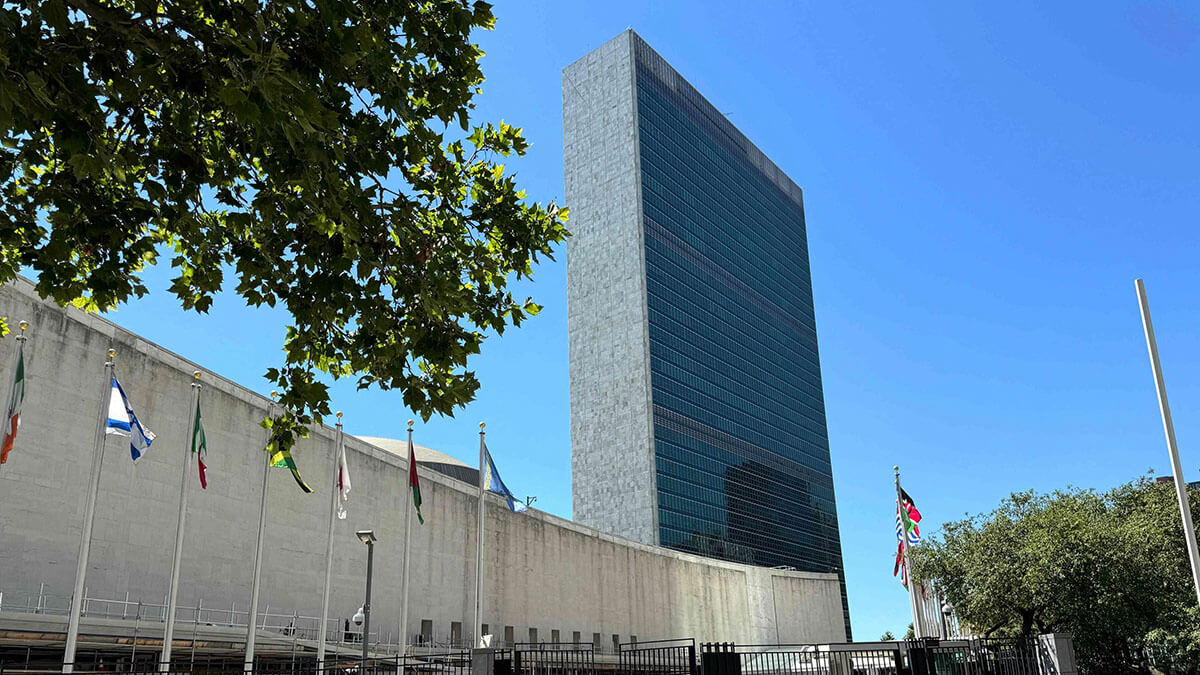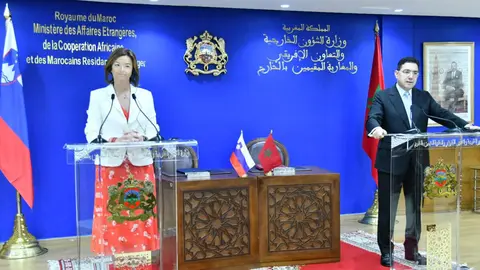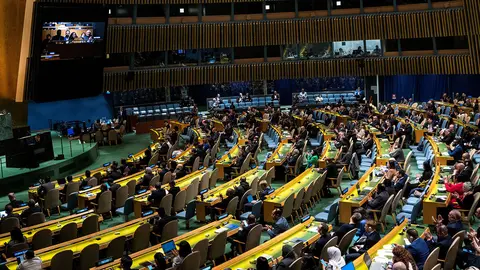Morocco boosts the promotion of foreign direct investment in Western Sahara

The Permanent Mission of Morocco to the United Nations (UN) in New York held an international seminar under the theme "Territorial autonomy: the promotion of foreign direct investment", aimed at promoting investment in Western Sahara from outside.
The seminar was led by experts on the subject and leading academics from Switzerland, Portugal, Spain, Denmark, Indonesia and Tanzania. It was attended by some fifty diplomats, including several ambassadors in New York, senior UN officials and media accredited to the United Nations, as reported by Morocco's official news agency MAP.
The seminar analysed the case of Morocco's project to revitalise and develop the territory, in comparison with other autonomous models in other countries. Morocco proposes for Western Sahara a formula of broad autonomy under the sovereignty of the Moroccan kingdom that seeks to develop the area to the maximum in all aspects. This formula proposes broad autonomy aimed at self-government for the Saharawis in all areas, leaving foreign policy and defence in the hands of the Moroccan state.

Morocco presents this option for resolving the Sahrawi conflict, which has lasted for more than four decades since Spain left the area as a colonial power, respecting in any case the UN resolutions and highlighting the efforts of Staffan de Mistura, the UN Secretary-General's special envoy for Western Sahara, who has always promoted dialogue between the parties involved in the Sahrawi dispute, such as Morocco, the Polisario Front, Algeria, Mauritania and the so-called Group of Friends of Western Sahara: Spain, Russia, France, the United Kingdom and the United States.
The seminar held at the UN headquarters provided an opportunity to compare the autonomy initiative proposed by the Kingdom of Morocco for the Sahara region with other autonomy experiences around the world, especially in terms of promoting foreign direct investment in the autonomous regions and stimulating the economic development of local populations.
As reported by the MAP agency, Marc Finaud, senior adviser at the Geneva Centre for Security Policy, recalled in his speech the provisions of the Moroccan autonomy initiative which guarantee the socio-economic development of the Sahara region, in particular its article 13, which stipulates that the region will have the necessary financial resources for its development and will benefit from funds allocated by the state in accordance with the principle of national solidarity.
Moreover, the expert indicated that Morocco is mobilising efforts to attract more foreign direct investment to the region, which is experiencing unprecedented dynamism thanks to the New Development Model for the Sahara launched by King Mohammed VI in 2015.
In this regard, the Moroccan monarch has advocated in recent years for a strong development of Western Sahara and for the African Atlantic Initiative, aimed at promoting access to the Atlantic Ocean for other African countries interested in strengthening their economic and trade relations.
Morocco offers its Atlantic façade to favour access for African countries, especially those on the western side of the continent, with the aim of promoting financial and economic improvements for these nations with a view to generating wealth and well-being in the area.

Strong international support for Morocco's proposal for Western Sahara
The seminar held at the UN headquarters also highlighted the strong international support that Morocco's autonomous proposal for Western Sahara has received over the years. Important countries such as the United States, Israel, the United Arab Emirates, Germany and Spain itself have considered the North African country's proposal as the most "serious, credible and realistic" way of resolving the Western Sahara conflict. In fact, several nations have opened consulates in Dakhla and Laayoune as a show of support for the Moroccan kingdom.
Opposing this position is that of the rival Polisario Front, supported by Algeria, which advocates holding a referendum on independence for the Sahrawi population, which is difficult to achieve due to various problems such as voter registration. This position has far fewer supporters in the international arena, particularly Algeria, Morocco's great political rival in the Maghreb, especially after breaking off diplomatic relations with the Moroccan kingdom in August 2021 after accusing it of "hostile acts" and due to deep political differences, as in the case of the Sahrawi dispute.
A very acrimonious situation that has not been resolved despite the hand extended by King Mohammed VI on several occasions to reconcile the situation between two neighbouring countries that were considered historic allies in the past.
For his part, Rui Carita, professor at the University of Madeira (Portugal), during the meeting at the UN headquarters, compared Madeira's autonomy statute and the Moroccan autonomy initiative. In this context, he highlighted article 13 of the Moroccan initiative and proposed the creation of an International Business Centre in the Moroccan Sahara, aimed at attracting new investments, as in the case of the neighbouring Atlantic autonomous regions, such as Madeira.
On the other hand, he considered that "the progressive international recognition of Moroccan sovereignty over the Sahara and the opening of several consulates in Dakhla and Laayoune demonstrates an urgency to define the status of the new autonomous region", affirming that "the analysis of the history of the European Atlantic autonomous regions of the Azores, Madeira and the Canary Islands, and the coasts of North Africa, leads to the conclusion that the future of the question of the Moroccan Sahara will involve the establishment of an autonomous region of Morocco".
For her part, María Mut Bosque, Professor of Law at the University of Catalonia (Spain), recalled that "the autonomy initiative was presented by Morocco to the UN Secretary General to break the impasse in the negotiations on the regional dispute over the Sahara".
María Mut Bosque stressed that the UN Security Council, in its successive resolutions, has described the Moroccan initiative as "serious and credible".
Therefore, there is an important international current that considers Morocco's proposal for Western Sahara as "serious and credible" in order to promote the area economically and commercially to the maximum within an important system of self-government for the Saharawis under the sovereignty of the Moroccan kingdom.










